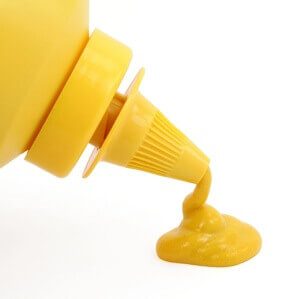
A surprising number of people hate home & herbal remedies. We have lost count of the number of visitors to this website who complain bitterly that such treatments lack credibility and are unproven. We have also been accused of promoting scams and hoaxes, despite the fact that most home remedies are inexpensive and can be created in the kitchen.
Many health care providers have been taught that herbs and kitchen table wisdom are relics of a bygone era. We beg to disagree. We firmly believe that there is room for both modern meds AND treatments that have withstood the test of time.
Evidence vs Experience: A False Dichotomy!
It is certainly true that there is no company or funding agency willing to spend tens of millions of dollars to carry out randomized controlled trials on remedies that can’t be patented. There is, however, a surprising amount of data demonstrating that both herbs and home remedies have a scientific basis for healing many common ailments.
Let’s get one thing absolutely straight from the get go: We love well-conducted randomized, controlled clinical trials. We also appreciate experience. It is not an either-or proposition.
Many modern medicines were derived from nature and/or because someone was alert and observant. One of the greatest drug discoveries of all time occurred in just this manner.
A Short History of Penicillin:
Jump into my time machine and set the clock to September 3, 1928. Dr. Alexander Fleming took a vacation. Before departing, however, he left a Petri dish growing with Staph bacteria. Upon his return, he discovered mold had restricted the growth of the bacteria in one area.
Dr. Fleming discovered that this “mold juice” could kill a variety of bacteria including streptococcus, diphtheria and meningococcus. You know the end of the story, right? Dr. Fleming’s discovery ultimately led to the development of penicillin.
Did Penicillin Work in Patients?
But the story does not end there. The first antibiotic had to be tested in humans. In those days, infected wounds were often lethal. They led to sepsis, which could not be reversed.
One of the first patients to receive penicillin was a 43-year-old British policeman. Albert Alexander was injured during a bombing raid in 1941. The wound became infected, and he became extremely ill.
Dr. Charles Fletcher injected him with the first crude extract of penicillin on February 12, 1941. Within 24 hours, Mr. Alexander had dramatically improved. He received the only available penicillin for four days and demonstrated a remarkable recovery. But then the penicillin ran out. Within a month, he relapsed and died.
Penicillin and Venereal Disease:
Clinical “trials” of penicillin happened in military hospitals in north Africa between 1942 and 1943. When the antibiotic was administered to injured soldiers, many recovered from what once would have been fatal infections.
Physicians knew the historical course of such wounds and could tell quickly that penicillin was having an important impact.
There was also a serendipitous discovery:
“Although he [Dr. Howard Florey] intended that penicillin be used to treat the seriously wounded, there were large numbers of venereal disease cases, against which penicillin was particularly effective, and from a military point of view being able to cure gonorrhea in 48 hours was a breakthrough.”
None of the penicillin advances occurred as a result of randomized controlled trials. The greatest drug discovery in modern medicine resulted from observation and experience!
Modern Medicines Originating from Home & Herbal Remedies:
We love science and randomized controlled trials (RCTs) when scientists do them properly. Many health professionals would be surprised to learn how many medications originally evolved from simple observation, though.
Aspirin:
The history of aspirin is a classic example. Willow bark was used for over 3,500 years dating back to ancient Egypt. Healers learned through trial and error that something in willow bark could ease pain and lower a fever.
Although there were no RCTs in those days, people knew that something in willow bark could ease inflammation. In fact, the father of modern medicine, Hippocrates, apparently told women to chew willow bark to calm the pain of labor during childbirth.
It wasn’t until 1828 that a scientist refined the active ingredient in willow bark and called it Salicin. Dr. Felix Hoffman eventually created acetylsalicylic acid (aspirin) in 1897 based on the salicylate compound found in willow bark.
Digoxin:
Historians also trace the use of cardiac glycosides back to ancient Egypt. It wasn’t until the 18th century, though, that the English physician William Withering learned about foxglove from colleagues and/or botanists and herbalists.
He went on to employ compounds from the foxglove plant (Digitalis purpurea) to treat “dropsy.” This was the old name for edema and was a prominent feature of congestive heart failure.

Common Foxglove flowers, many beautiful purple with white Common Foxglove flowers blooming in the garden
The drug digoxin (Lanoxin) was approved by the FDA in 1954 to treat heart failure and chronic atrial fibrillation. It was one of the key heart medications of the 20th century.
Common Sense and Experience When Utilizing Home & Herbal Remedies:
Sometimes all it takes is old-fashioned common sense to tell if something works. A perfect example is a home remedy that nuns and school teachers have employed for many decades: they applied cold keys to the back of the neck.
Either your nose is bleeding or it’s not. Your eyes will reveal if the remedy worked. No RCT is necessary. Here are a couple of stories that illustrate that point:
One reader offered this memory:
“I attended Catholic school and when anyone had a nosebleed, the nun would hold something cold against the back of the neck–ice, cold water on a paper towel, keys or a crucifix.”
A woman born in Belgium shared this:
“When I was a little girl I had many nosebleeds. My mother was always grabbing the big key from the front door and putting it on my back to stop the bleeding right away.”
Tammy says it’s the cold that works the magic:
“Anything cold will work. I’ve had success using ice packs, keys or a large metal kitchen serving spoon. Stops my nosebleeds within a couple of minutes. I get best results when the cold object lies against my back between my shoulder blades, or slightly lower.”
So Many Home & Herbal Remedies Are Observable:
Nosebleeds are just one example of the power of observation. You can read about black pepper to stop bleeding at this link. The individuals are convinced that black pepper saved their lives.
One word of caution, though. The FDA has reported that many spices imported into the US are contaminated with all sorts of unpleasant stuff. According to an NPR interview with a spice buyer for McCormick & Company, all their spices are steam sterilized.
Home & Herbal Remedies: Just Monitor the Pain:
Have you ever burned yourself in the kitchen? Who hasn’t? Pain is an immediate consequence.
Here is just one of many stories about the use of soy sauce for kitchen burns:
“I listened to your public radio show and heard a man call in recommending soy sauce for burns. “How weird is that?” I thought. But then, as I took a loaf of bread out of the oven, the inner edge of my thumb and the fleshy pad underneath hit the metal rim of the pan. I expected a painful burn. Since I had nothing else at hand, I decided to try the soy sauce remedy.
“The pain eased up in less than a minute, the soreness did not materialize and even the redness went away! It may be weird, but it certainly did work!”
Do you need an RCT to tell you if soy sauce works to ease pain? Some health care providers might convince themselves that this is purely a placebo reaction. But we have received so many similar messages that we are convinced it works!
Yellow Mustard for Heartburn:
Some home remedies seem counterintuitive. For example, if you have indigestion, swallowing a spoonful or two of yellow mustard might be the last thing you would feel like doing. Nonetheless, readers have told us over the years that mustard can serve as an effective heartburn remedy. One reader even used mustard to get off prescription acid-suppressing drugs.

Here is his story:
“For years, I was on powerful acid reflux drugs to help me with the pain of heartburn that seemed to get worse daily. I read that mustard might help, so I tried it.
“I’m happy to report I’m now completely off prescription drugs! The mustard remedy worked! In the beginning, I doubted that anything so simple would be useful, but I want to thank you for writing about this.
“Immediately after reading mustard could help, I walked over to my fridge, grabbed the mustard and swallowed two heaping tablespoons, followed by a swig of water. Now, I am fortunate I do love mustard, but I have to tell you it was getting a little old after my fourth bottle within three to four months. But oddly, it didn’t even dawn on me that each week I was using less and less mustard. So right about the time I was starting to gag at the sight of mustard, I actually stopped needing it daily!
Experimentation Did the Trick:
“I experimented a lot. If I knew I might have a spicy meal, I’d take mustard. Before, my heartburn was brutal at night, especially when I laid down. Two ‘doses’ of mustard before bed changed that. Within seven months, my heartburn is all but cured. Now I only take mustard once or twice a week, when I think I might have an extra spicy meal.
“Honestly, I don’t know why this remedy works but I’m living proof. If you have suffered for years with heartburn and want to get off the meds, give this a try. Don’t give up right away. It took me about four bottles to get away from that horrible acidic feeling in my throat. I also just tried to eat better all the way around.
“I was so traumatized by heartburn that when I did eat a spicy meal in the past, I just sat there waiting for the pain. I remember guzzling bottles of Mylanta or Pepto-Bismol on top of my regular meds. Nothing worked until I stumbled across the mustard remedy.”
The Science Behind Home & Herbal Remedies:
We now have a hypothesis how this mysterious remedy may work. A randomized controlled trial published in BMJ Evidence-Based Medicine (Sept. 11, 2023) demonstrates that curcumin is as effective as omeprazole (Prilosec) for easing heartburn symptoms.
Curcumin is the component of the spice turmeric that makes it yellow. Turmeric is a key ingredient in yellow mustard. Consequently, the power of curcumin to calm digestive upset might well explain why mustard can be helpful.
The authors of the study even offer an explanation for how curcumin may work. Apparently, transient receptor potential (TRP) channels are critical for the perception of intestinal pain. Curcumin activates TRPV1 channels to “reverse intestinal hypersensitivity.”
You can read more about this research at this link.
It is unlikely that the FDA will be approving yellow mustard to treat indigestion any time soon. Nonetheless, this simple and inexpensive approach could offer relief to people who prefer to follow the axiom, “Let food be your medicine.”
Final Words about Home & Herbal Remedies:
We would love to hear from you. Have you used a home or herbal remedy that worked? Please share it in the comment section below. If you would like to read more about such approaches, you may find that our book, The People’s Pharmacy Quick & Handy Home Remedies of real value. It is available from our bookstore at this link.
Citations
- Kongkam P et al, "Curcumin and proton pump inhibitors for functional dyspepsia: a randomised, double blind controlled trial." BMJ Evidence-Based Medicine, Sept. 11, 2023. http://dx.doi.org/10.1136/bmjebm-2022-112231

